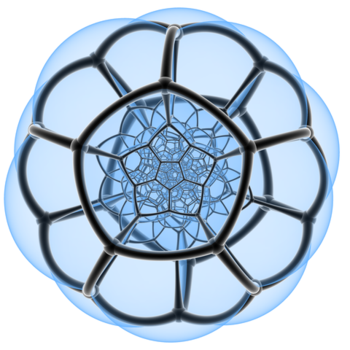We can solve this using integration by parts : if #f# and #g# are two continuously differentiable functions, then the following equality holds:
#int f^'(x)g(x)dx=f(x)g(x)-int f(x)g^'(x)#
In our case #f^'(x)=x^2# and #g(x)=ln((1+x)/(1-x))#. We can compute a primitive function of #f^'# and the derivative of #g#:
- #f(x)=x^3/3#
- #g^'(x)=1/((1+x)/(1-x)) * ((1-x)+(1+x))/(1-x)^2=(1-x)/(1+x) * 2/(1-x)^2=2/(1-x^2)#
So we write the integral as follows
#int x^2 ln((1+x)/(1−x))dx=x^3/3 ln((1+x)/(1-x))-int x^3/3 *2/(1-x^2) dx#
Now we have to solve the much simpler integral #2/3 int x^3/(1-x^2) dx#. To do it, we can look at the integrand function and notice that the numerator's degree is higher than the denominator's degree. So we can divide the numerator by the denominator, obtaining a quotient with a reminder. This would help in splitting the fraction as a sum of a non-fractional part and a fractional part, and this second term would have the property that the numerator has lower degree than the denominator.
- Division's result: #x^3=(1-x^2)(-x)+x#
- Split: #x^3/(1-x^2)=-x +x/(1-x^2)#
The integral can now be solved as follows
#2/3 int x^3/(1-x^2) dx=2/3 int (-x +x/(1-x^2)) dx=-2/3 int x dx -2/3 int x/(x^2-1) dx=-2/3 x^2/2-2/3 1/2 int (2x)/(x^2-1)=-x^2/3-1/3 ln(x^2-1)+K#
where #K in RR# is an arbitrary constant.
Notice that in the last step we used the fact that the integrand's numerator #h^'(x)=2x# is the derivative of the denominator #h(x)=x^2-1#, so we can recognize the structure of the logarithm's derivative: #(h^'(x))/(h(x))=[ln(h(x))]^'#.
Let's put everything together:
#int x^2 ln((1+x)/(1−x))dx=x^3/3 ln((1+x)/(1-x))-[-x^2/3-1/3 ln(x^2-1)+K]=1/3[x^3ln((1+x)/(1-x))+x^2+ln(x^2-1)] +C#
where #C in RR# is an arbitrary constant (#C=-3K#).
Note: Integration by parts is the natural way to get rid of logarithms when they appear as one of the factors in a product, if the argument of the logarithm is a "nice" function and not another logarithm or some complicated expression. This works because the logarithm's derivative doesn't involve the logarithm function anymore!

